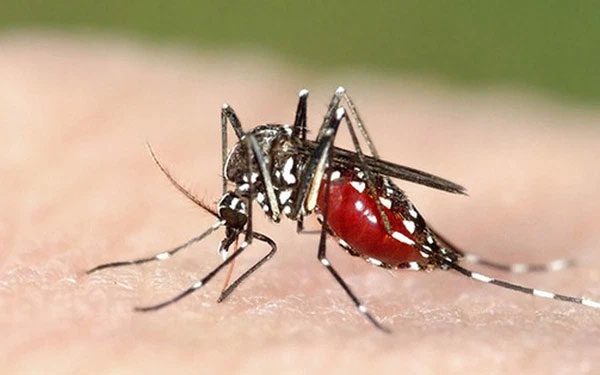The World Health Organization (WHO) has announced its recommendation for the widespread use of the first and only malaria vaccine for children in the sub-Saharan Africa region and other areas with moderate to high malaria incidence globally.
According to the WHO, this recommendation is based on the results of ongoing vaccination trials at clinics in Ghana, Kenya, and Malawi. The program, launched in 2019, has reached 800,000 children. It demonstrates that the RTS,S/AS01 malaria vaccine, also known as Mosquirix, is safe, cost-effective, and significantly reduces mortality rates in children suffering from malaria.

This vaccine helps protect children’s health and control malaria.
WHO Director-General Tedros Adhanom Ghebreyesus stated, “This is a historic moment. The malaria vaccine for children has been long awaited and is a breakthrough for science, protecting children’s health and controlling malaria.”
According to Ghebreyesus, the vaccine, combined with existing malaria prevention tools, could save tens of thousands of children’s lives each year. This vaccine is administered in four doses to children aged 5 months and older. It can combat the deadliest form of malaria, known scientifically as Plasmodium falciparum.
Malaria is an infectious disease transmitted by mosquitoes. According to the WHO, despite being preventable and treatable, it remains one of the leading causes of death among children in the sub-Saharan region. Each year, 260,000 African children under the age of 5 die from malaria.
Scientists explain that the vaccine works by preventing malaria parasites from maturing and multiplying in the liver of infected individuals before they enter the bloodstream and cause symptoms. Clinical trials have shown that the vaccine can reduce the risk of death by up to 40% in infants aged 5 to 17 months suffering from malaria. However, the vaccine’s effectiveness diminishes over time.
Nevertheless, the WHO expresses optimism about having a good tool developed by African scientists to address this pressing issue on the continent. The British pharmaceutical manufacturer GlaxoSmithKline and the Bill and Melinda Gates Foundation are also acknowledged for funding and facilitating the production of the malaria vaccine.
“With the RTS,S/AS01 vaccine, the 30-year development journey has finally borne fruit, creating a breakthrough for public health. We still have a long way to go, but this is a significant step on that journey,” the WHO remarked.
Matshidiso Moeti, WHO Regional Director for Africa, stated: “For centuries, malaria has plagued sub-Saharan Africa, causing immense suffering. We have long hoped for a malaria vaccine, and for the first time, we have a vaccine recommended for widespread use.”
According to Moeti, WHO’s official recommendation for the malaria vaccine will bring hope to Africa, the continent most heavily affected by malaria. Many African children will now have the chance to be protected against malaria and can grow up to be healthy instead of succumbing to the disease at just a few months old.


















































